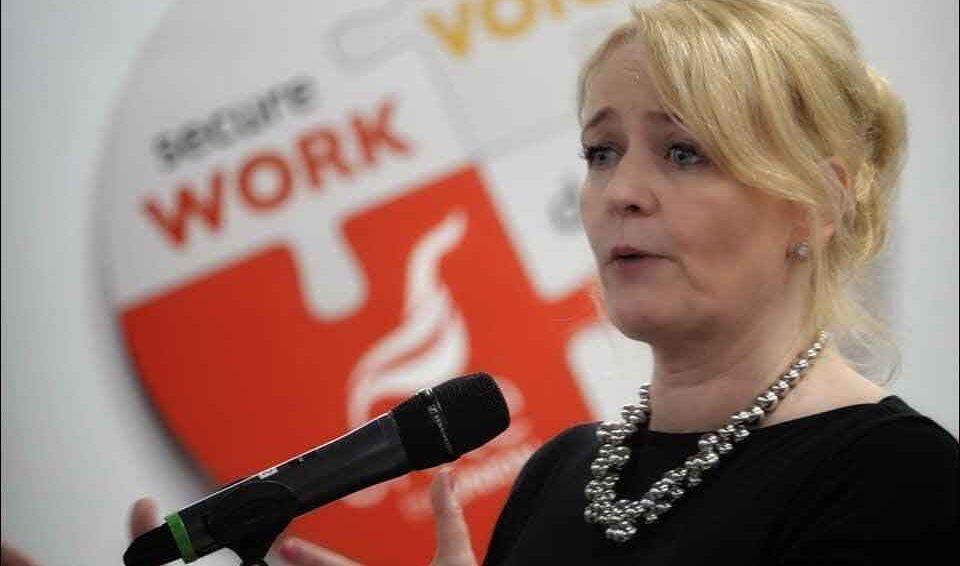

SHARON GRAHAM was elected as General Secretary of Unite in August last year on the promise of going ‘back to the workplace’ and stressing greater industrial militancy under her leadership. After just over four months with her in charge, it is becoming increasingly clear what this means in practice.
It is certainly the case that a more confrontational industrial strategy is being implemented, with many disputes seeming to pop up, often resolving in better deals for the workers involved, either because of strike action or the threat of it.
Graham’s strategy appears to be like that of the late Bob Crow when he was General Secretary of the RMT – calling or threatening strikes to leverage a better deal and calling them off once this is achieved. This accounts for the ‘start and stop’ nature of many of the disputes we have seen over the last few months, where strikes are called, then suspended, then started again. Such an approach is in-keeping with the organising strategy Unite has deployed for some time, led by the Organising Unit under Graham.
Such tactics are very often effective, particularly when they rely on the bosses’ knowledge that the union will actually follow through with its threats if workers’ demands aren’t met. They are also often extremely popular with workers, who see their demands met as a result of flexing their industrial muscles.
Also, starting at the base with small victories in key workplaces can be a very effective way to build confidence within the workforce while working towards larger, more general actions. Building the habit of strike action and confrontation is vital in building a militant workers movement.
There are, however, limitations to this approach that must be recognised. It can lead to isolated, localised disputes, such as we have seen on the buses and amongst HGV drivers, where certain groups of workers enter a dispute, win, then go back to work, while others either do not enter the struggle, or fail to make the same kind of gains. Workers facing many of the same issues, and often even facing the same employer, are not struggling together.
Also there is a tendency to take the first concession the bosses make, rather than holding out for more. Sometimes, most notably on pay, this can lead to workers settling for wage rises that are in fact real pay cuts.
Workers’ control
Sometimes of course the workers in dispute may want to pause strike action or settle for an offer that falls short of their original claim. But rarely if ever are they presented with a choice of tactics, let alone the right to debate their merits and choose their own strategy.
Unite & Fight calls for the workers in dispute to have control of their dispute – from the naming of strike dates to the nature of the claim and to be present at negotiations – and expect the union and its organisers to support them.
Mass meetings and elected strike committees (and combines) can do this, though they should expect a struggle with the officials to achieve this. Indeed this approach to industrial action is an essential step to transforming Unite into a fully democratic, fighting union.